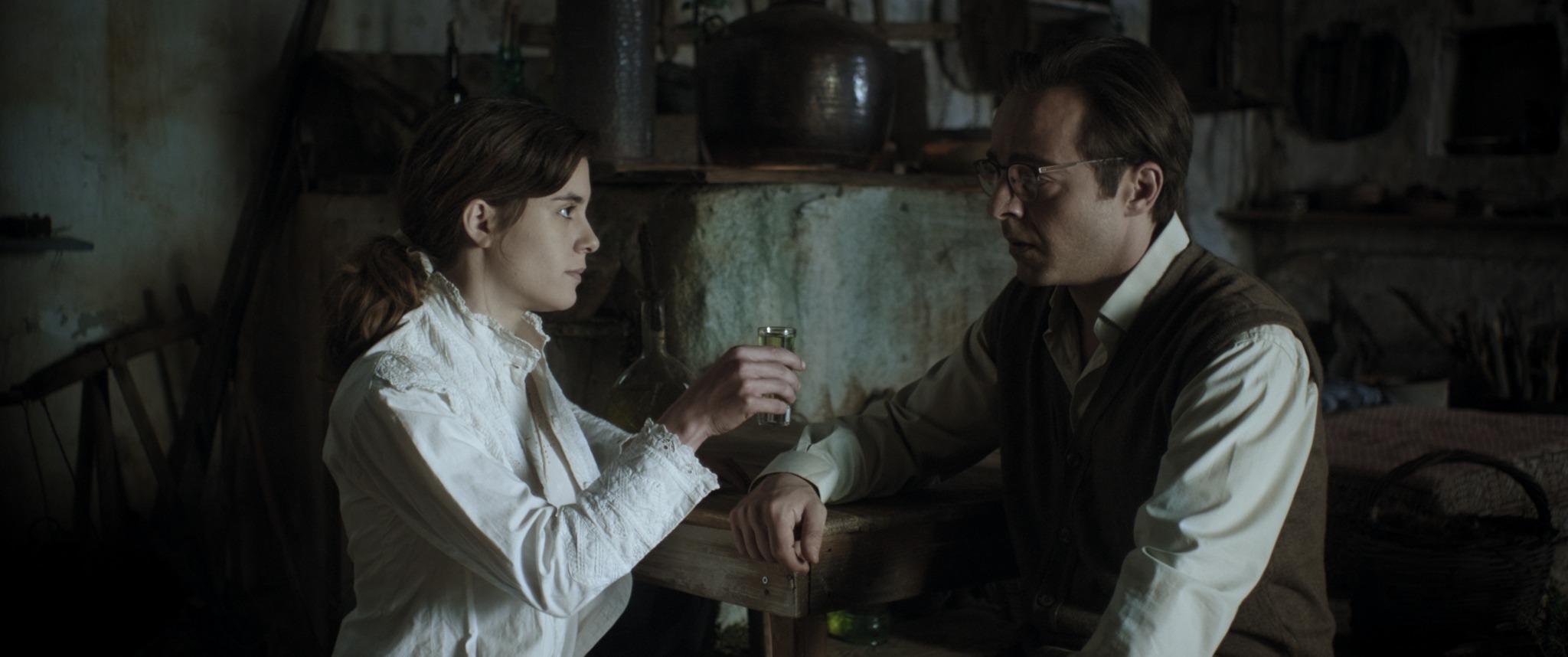by Alexander C. Kafka

“The forest is deep. It’s easy for those unfamiliar with its ways to find themselves lost.”
So says a beguiling young woman, Danae (Anastasia Rafaella Konidi), who lives in a tumble-down cabin in the woods. She says this in caution to Panos (Prometheus Aleifer), a doctor who has just moved to a nearby village. Panos, in a moment of cell-phone distraction, nearly ran her over and has tracked her down to see if she’s OK.
She’s not. Marring her wholesome beauty is an alarming intermittent skin condition, although it doesn’t seem to bother her very much. And her father, an old, long-bearded flesh-and-bone maniac, molests her.
Panos wants to go seek help for her. After all, as he tells a villager, “we’re not living in the Middle Ages.” But some women are hard to leave. Very.
Panos and Danae become, as the film’s title reflects, Entwined.
Danae speaks in a peculiarly old-fashioned, literary manner. Obsessed with keeping her hearth fire lit, she lives primitively and seems not of this time, nor of any specific time really. She dresses in loose white skirts and blouses, cooks simple fare, gathers branches, and listens to an eerie violin tune on an ancient, warped phonograph. She’s hospitable, tender, and has a pantheistic reverence for her surroundings.
As Danae casts her spell over Panos, so this defiantly minimalistic, low-budget Greek horror fantasy, director Minos Nikolakakis’s first feature, casts its spell over us.
Its screenplay by John de Holland, who also plays Panos’s half-brother George, is willfully gaunt, though it unmistakably underlines the idea that science can’t explain everything.
Cinematographer Thodoros Mihopoulos brings the woods very much alive — beautiful and more than a bit threatening. Composer Sotiris Debonos’s score combines scratchy strings, neo-baroque themes, and electronic atmospherics. These enhance the resonant tree creaks and bird calls mixed by editor Giorgos Georgopoulos into a hallucinogenic, lulling, primal embrace.
Every now and then we cut away to George, back in civilization and calling repeatedly to see what’s become of Panos. George’s wife assures him that Panos is probably doing just fine.
After all, what horrible force could involuntarily isolate us so completely in the modern world? Add to the 2019 film’s chilling characteristics its power as premonition.
“I need light, not prayers,” Panos irritably tells a muttering villager at a patient’s bedside. But as it turns out, the good doctor may need both.
